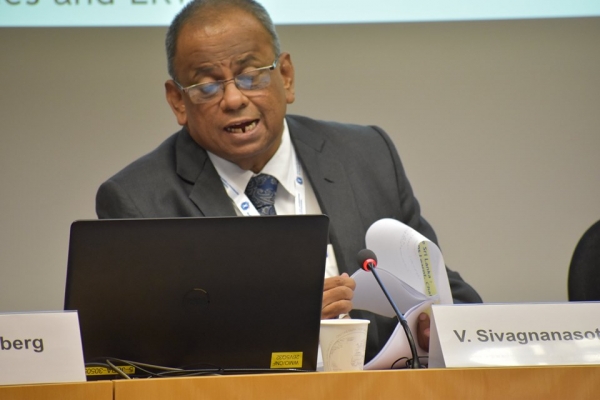Sri Lanka’s sustained focus on mine risk education and awareness creation makes it an exemplary model for the rest of the world, international experts participating in an interactive panel discussion, chaired by Ambassador A.L.A. Azeez, the Permanent Representative of Sri Lanka to the UN in Geneva, reiterated.
Deliberating on the sidelines of the Intersessional Meeting of the Anti-Personnel Mine Ban Convention (APMBC) held from 22 to 24 May 2019, experts in mine action, humanitarian disarmament and human rights appreciated the remarkable progress achieved by Sri Lanka in mine clearance, mine risk education and victim assistance, paving the way for the return of, and housing and livelihoods for, thousands of affected people.
The well-attended panel discussion ‘Towards a mine-free Sri Lanka in 2020: Challenges and Prospects for Partnerships’, drew in representatives of international organisations, implementing partners and the donor community, in addition to several mine action experts, academics and diplomats.
V. Sivagnanasothy, Secretary to the Ministry of National Policies, Economic Affairs, Resettlement and Rehabilitation, Northern Development and Youth Affairs, Ambassador Hans Brattskar, Permanent Representative of Norway to the UN in Geneva and the President of the forthcoming 4th Review Conference of the APMBC, Asa Massleberg, Advisor - Strategic Management of the Geneva International Centre for Humanitarian Demining and S. Jaladeepan, Director and National Focal Point coordinating the National Mine Action Programme, made presentations at the discussion, sharing their views and perspectives on Sri Lanka’s achievements as well as challenges faced.
Sri Lanka’s success in establishing an effective national ownership of its mine action program, integrating gender diversity into it, collaborating effectively with international stakeholders, and contributing to the development of communities, received special commendation at the event.










